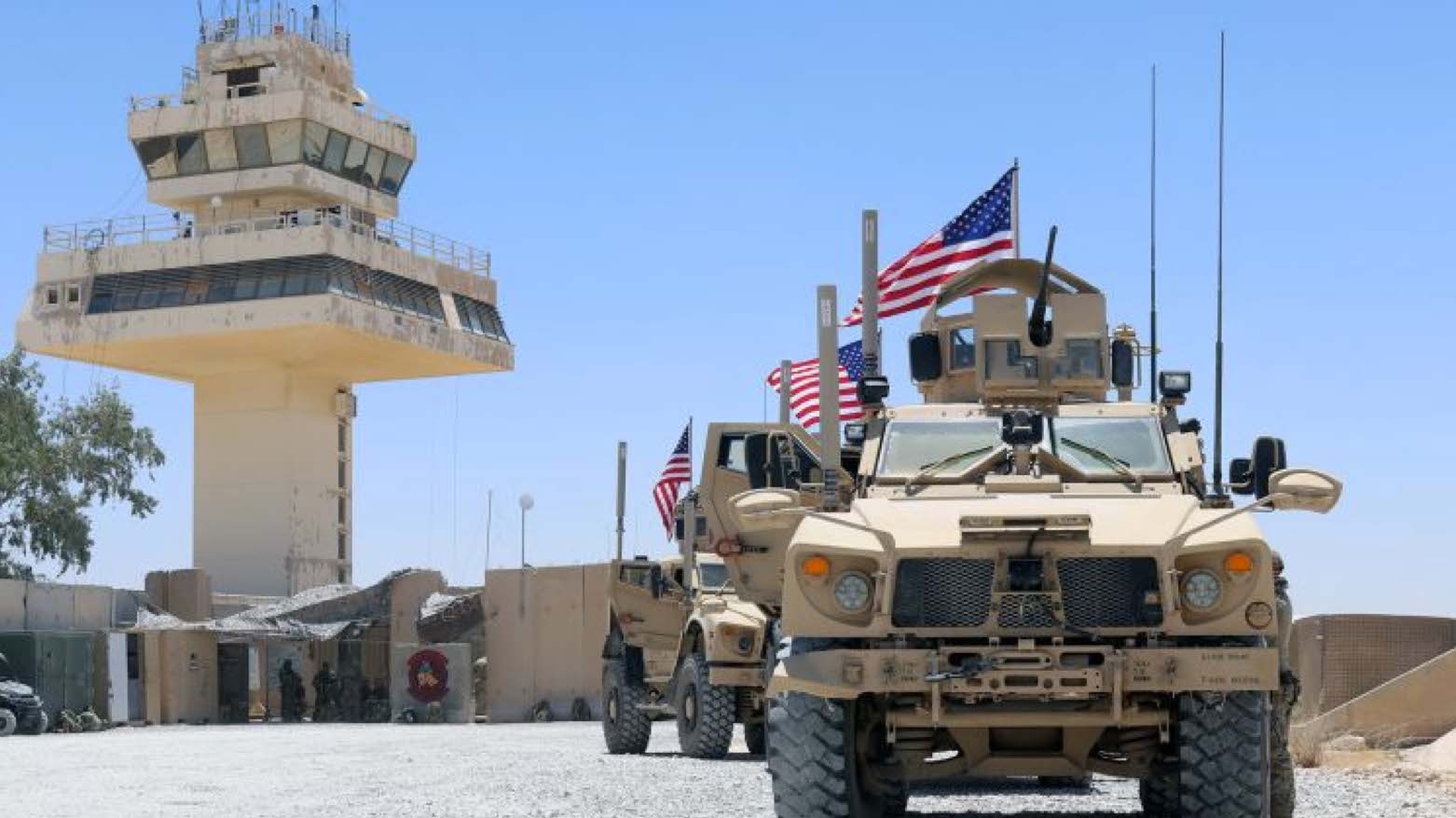Limited U.S. strikes on Iranian targets in Syria fail to deter attacks
Sen. Tom Cotton complained that the U.S. retaliation on unoccupied proxy warehouses "merely validates Iran’s strategy to use proxies to attack Americans," and “they are laughing at us in Tehran.”

WASHINGTON DC, United States (Kurdistan 24) – Early Friday morning, in pre-dawn raids, U.S. planes struck targets in Syria associated with Iran’s Islamic Revolutionary Guard Corps (IRGC.)
The strikes were quite limited, targeting a weapons and ammunition storage facilities. As if to underscore this point, pro-Iranian militias later that day again attacked U.S. forces in Iraq, as well as in Syria.
Thus, any deterrent effect from the U.S. strikes was minimal—which was predictable. Indeed, Kurdistan 24 did predict such an outcome.
Read More: U.S. bombs IRGC sites in eastern Syria, following attack on Erbil Airport
As The New York Times later reported, “Just hours after U.S. fighter jets bombed facilities used by Iran’s Islamic Revolutionary Guard Corps and its proxies in Syria early Friday, the proxies fired back—launching an attack drone at U.S. forces in western Iraq.”
The drone got to “within a few kilometers” of Al-Assad Air Base in Anbar province. But U.S. troops “successfully shot it down without further incident,” as one U.S. official told ABC News.
U.S. officials told the Times that rockets were also fired into northeastern Syria, “but landed far away from American troops.”
And as the Times made clear, “Pentagon officials have attributed the attacks to Iranian-backed militias.”
Indeed that point was made, most strongly, by the U.S. Secretary of Defense Lloyd Austin. In announcing the U.S. strikes, he stated, “Iran wants to hide its hand and deny its role in these attacks against our forces.”
But Austin also underscored the very limited nature of the Biden administration’s response to those attacks—as if the administration somehow thinks that being nice to the Iranians will cause them to reciprocate.
Austin described the U.S. military action as “precision, self-defense strikes,” which were “narrowly tailored” for just one goal: “to protect and defend U.S. personnel in Iraq and Syria.”
Biden Administration's failure of comprehension and action
But Iran and its proxies benefit from attacking Americans. The Middle East harbors a great deal of resentment of the U.S. By attacking Americans, Iran and its proxies mobilize that sentiment behind themselves, while they intimidate their rivals.
Indeed, Rend Rahim, writing for the Arab Center, Washington DC, has explained how the war in Gaza has crystalized a popular anger among Iraqis to the advantage of the more extreme pro-Iranian militias, while it has undercut the position of the prime minister, Mohammed Shia al-Sudani.
Thus, it follows that if Iran and its proxies benefit politically by attacking U.S. targets, to be effective and have a true deterrent effect, the U.S. response must inflict more pain on Iran and its proxies than what they gain politically.
There has been much criticism of the limited U.S. strikes. Michael Mulroy participated in the opening phases of the 2003 U.S.-led war that ousted Saddam Hussein, working with the Peshmerga in the Kurdistan Region. Subsequently, he became Deputy Assistant Secretary of Defense for the Middle East, the top Pentagon official for that region.
Mulroy told ABC News on Friday,“The latest attack needs to be responded to with force, force capable of changing their calculus about attacking our people in the future.” Similarly, The New York Times cited a number of individuals saying the same thing: it was a start, but too weak.
The U.S. strikes “demonstrate that we won’t just take incoming attacks without a response, but they were not, and are not, sufficient to deter additional future attacks,” David Deptula, a retired Air Force general and Dean of the Mitchell Institute for Aerospace Studies, told the Times.
Similarly, Republican Senator Tom Cotton, a member of the Senate Armed Services Committee, said, “The U.S. retaliation, especially on unoccupied proxy warehouses, ‘merely validates Iran’s strategy to use proxies to attack Americans.’”
Cotton added, as the Times reported, “They are laughing at us in Tehran.”
Washington more fearful of war with Iran than Tehran is?
The Biden administration holds a dubious view of the Iranian regime. As one U.S. official told the Times, it does not believe “that the Iranian government wanted a war with the United States.”
“Iran, the official said, is believed to be wary of the Shiite militias taking the attacks so far that they drag Washington and Tehran into direct conflict. At the same time, the official said that Tehran wanted to give the militias space to express their anger,” the Times reported.
So this was all about angry people? Karim Sadjadpour of the Carnegie Endowment for International Peace, suggested something quite different.
It was the U.S. that was fearful of a war with Iran and that played a major role in limiting its actions.
“Iran knows the Biden administration has little appetite for another war in the region,” the Times said, summarizing Sadjadpour’s perspective. Thus, Iranian officials may well think they can continue to support limited attacks against U.S. forces, because it is Biden who really wants to avoid war with them, rather than the other way around.